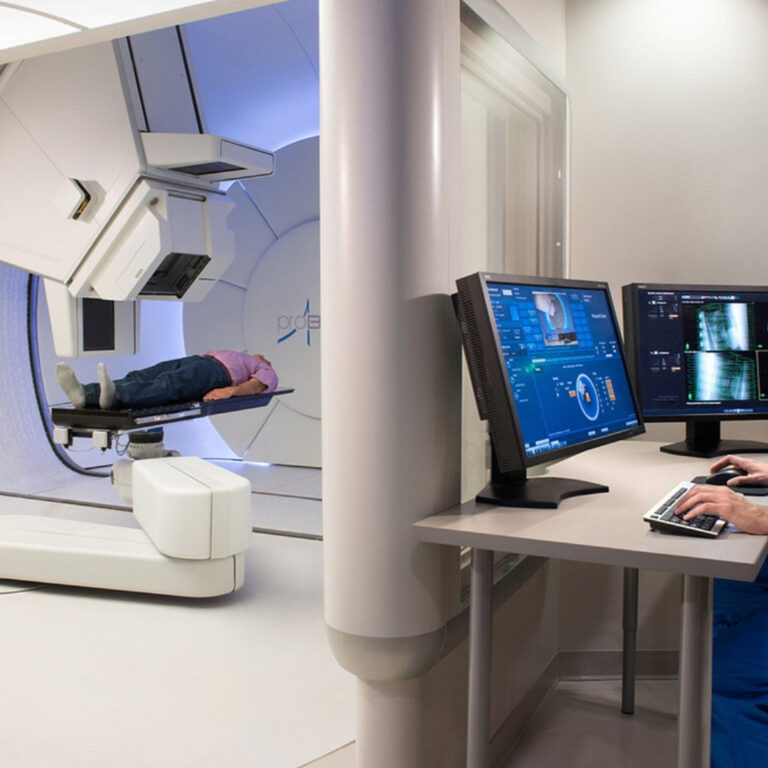In an important milestone for UK-based proton beam therapy, Proton International London has announced that it is now offering private treatment for selected gastrointestinal (GI) cancers at its state-of-the-art centre in London. The development reflects Proton International London’s commitment to broadening access to this advanced, precision-led cancer treatment.
For more information about proton beam therapy for gastrointestinal cancers at Proton International London, read about our service.
Delivered in partnership with University College London Hospitals NHS Foundation Trust (UCLH), the new service provides gastrointestinal cancer patients access to one of the most advanced forms of radiotherapy available in the world.
Proton beam therapy allows clinicians to deliver radiation with precision to the tumour while sparing normal tissues. Unlike conventional radiotherapy, which uses X-rays that release energy as they pass through the body, protons deposit most of their energy directly at the tumour site with minimal exit dose. This precision helps to protect nearby vital organs such as the heart, lungs, bowel, liver, and spinal cord, which is particularly important in complex gastrointestinal cases.
“Introducing proton beam therapy for gastrointestinal cancers is an important milestone for Proton International London,” said Tina Dunworth, CEO of Proton International London. “It reflects our commitment to expanding access to advanced treatments, supporting clinicians, and improving outcomes for patients across the UK and internationally.”
The new service will initially focus on the treatment of:
- Oesophageal cancers, where sparing the heart and lungs is critical
- Primary liver cancers, particularly larger tumours that are not suitable for stereotactic radiotherapy or surgery
- Some gall bladder cancers that are not suitable for conventional radiotherapy
Proton International London’s multidisciplinary team of consultant oncologists, radiographers, and clinical support specialists bring extensive experience in advanced radiotherapy techniques and active involvement in international proton therapy research.
Located within University College Hospital, the centre provides a premium, consultant-led experience in partnership with one of the UK’s leading academic and research hospitals.





